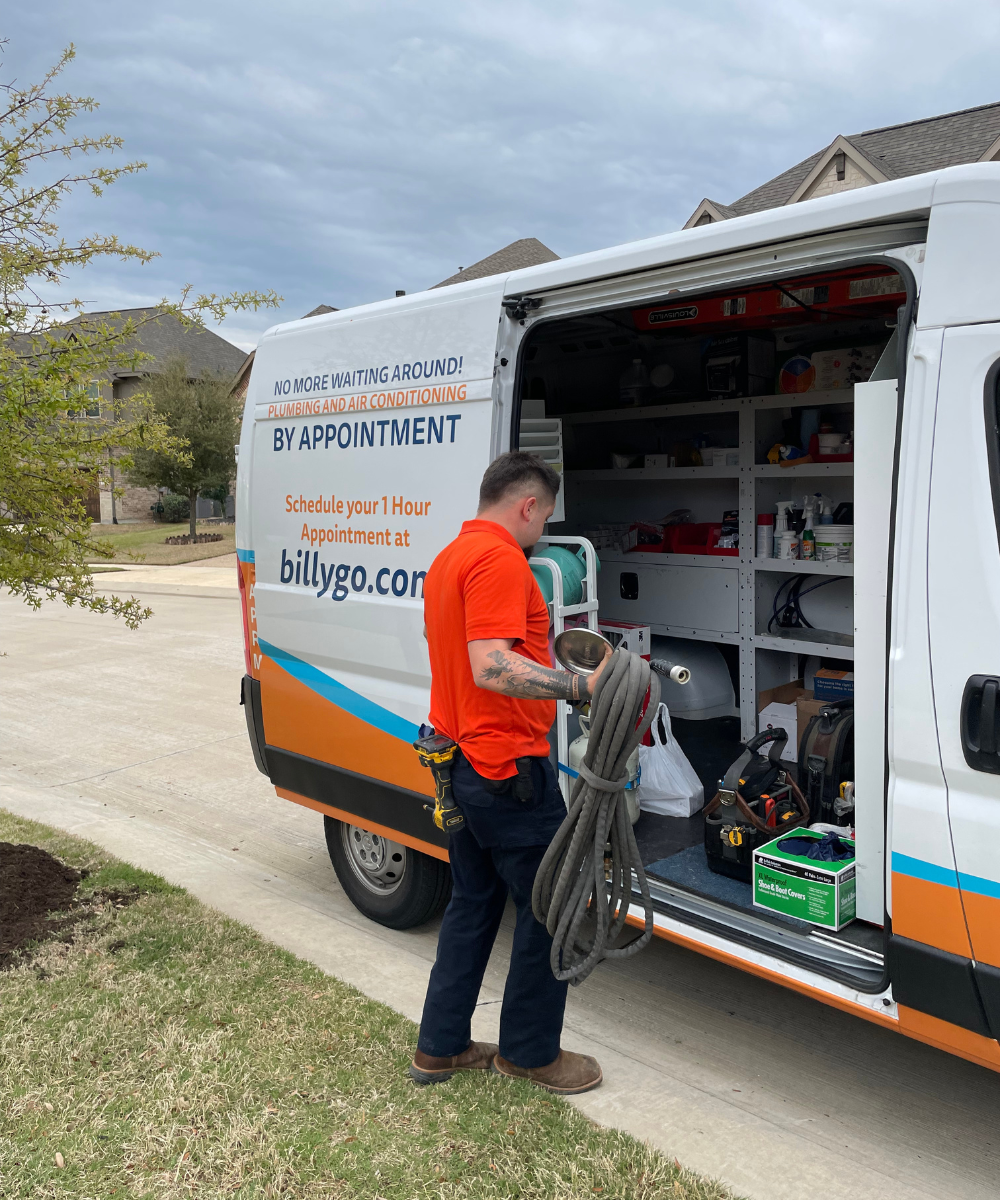Do you believe you have a water leak in your home? billyGO’s licensed and certified plumbers can quickly and efficiently detect and repair water leaks. Our plumbers are available 24/7, including weekends and holidays. If you think you are experiencing a water leak in the DFW metroplex, don’t hesitate. Call us, or schedule online with billyGO today!.
Fast Water Leak Detection & Repair Services in DFW
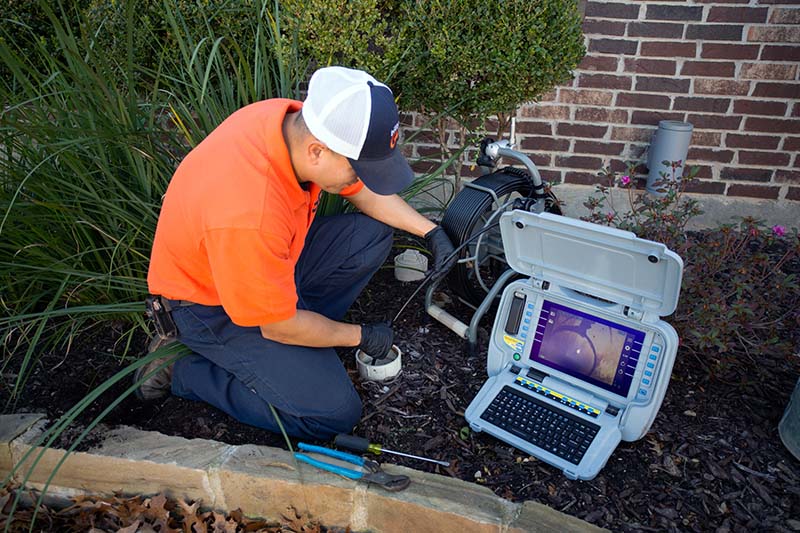
Neglecting small leaks can escalate into significant and costly plumbing issues over time. Even though water leaks often leave physical evidence, there are instances where plumbing problems may not be immediately apparent. At billyGO, we understand the importance of early detection, especially for less obvious water leaks. Our expert plumbers employ cutting-edge leak detection technology, utilizing fiber optic cameras to conduct thorough inspections of your home’s pipes. In addition, we employ acoustic listening devices, infrared cameras, and various techniques to swiftly identify and repair any water leaks that may not be easily visible. This proactive approach ensures that potential issues are addressed promptly, preventing them from spiraling into more extensive and expensive problems down the line. Trust billyGO for advanced leak detection solutions that safeguard your home and save you from unnecessary expenses.
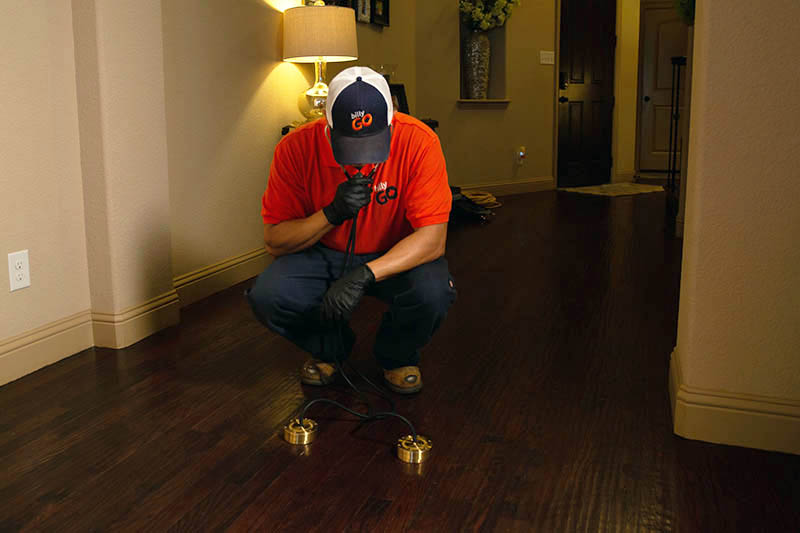
The plumbing in your walls, under your floors, or in your yard can leak without any immediately obvious symptoms. Temperature changes and wear and tear are generally the cause of these pipe bursts and leaks. Shifting soil and intrusion from the root systems of trees and plants may also be the culprit of water leaks.
The Most Common Signs of Water Leaks
- An unexplained, higher than average water bill
- Weaker water pressure than normal
- Strange noises such as rattling, or hissing from pipes
- Mold, mildew, or higher humidity in homes
- Water Stains on your ceilings, walls, or floors
- Unexplained moisture or puddles of water on the floor
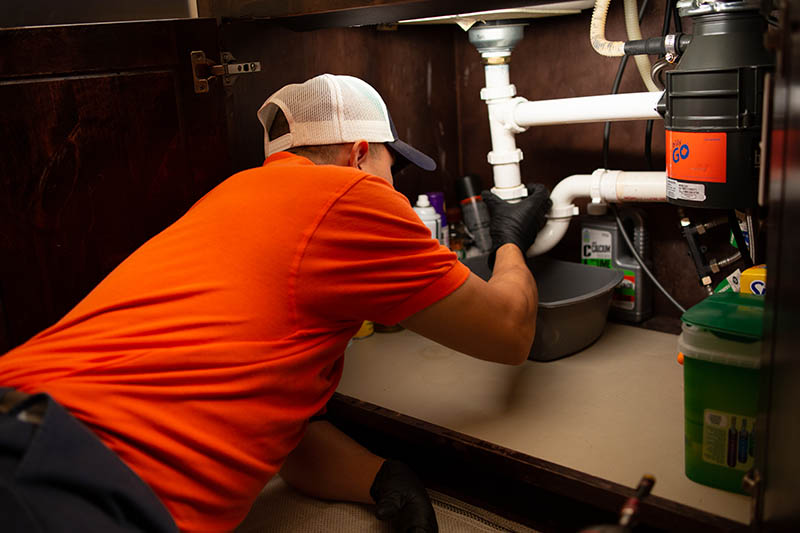
In the event of a water leak, taking swift action is crucial. We advise you to promptly shut off the water supply to the affected plumbing fixture to mitigate any potential damage. For more severe situations, locating the main water shut-off valve to your home becomes essential, and our team can guide you through this process if needed. At billyGO, our licensed and certified plumbers are equipped to handle water leaks of any magnitude. Whether it’s a minor drip or a major burst pipe, no plumbing issue is too big or too small for our skilled professionals. Trust in the expertise of billyGO to assess, address, and resolve water leaks efficiently, safeguarding your property from potential water damage.
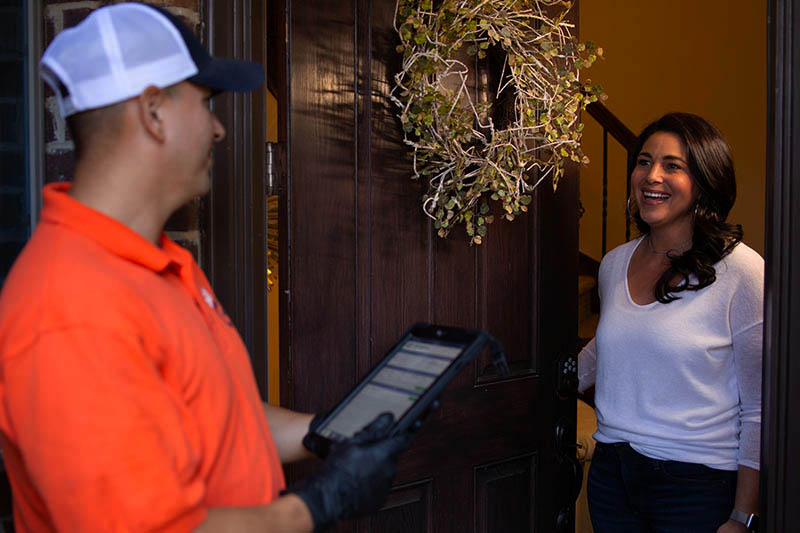
At billyGO, your safety remains our paramount concern, particularly when addressing plumbing leaks. Our team of professional Dallas-Fort Worth plumbers not only undergoes rigorous training but is dedicated to delivering the highest level of customer service in the industry. Beyond resolving plumbing issues, we take pride in treating your home or business with the utmost respect, ensuring that our services not only meet but exceed your expectations.
Anticipate our team to arrive promptly at the scheduled time, ready to tackle any plumbing challenges. We make it a priority to maintain a safe and orderly workspace, demonstrating our commitment to efficiency and cleanliness throughout the service. Additionally, our focus on transparent communication means you’ll be kept informed at every stage of the process, empowering you with the knowledge and assurance that your plumbing needs are being addressed with precision and care.
Save Big with the billyGO NOW! Membership
Best in class project support and customer satisfaction
Enroll in billyGONOW today and enjoy discounted rates on annual HVAC and plumbing service and maintenance. You’ll also receive VIP treatment and the assurance of 24/7 emergency plumbing, heating, and A/C service. All of this is available for an annual fee of just $99, making it an excellent value.
- Annual heating, and A/C tune-up service to all units in your home.
- Annual plumbing inspection.
- No dispatch fees ($50 savings).
- Automatic 15% discount for all billyGO services.
- Automatic $50 discount on any Holiday service.
- VIP priority service and repairs from dedicated service technicians.
- Priority 24/7 emergency plumbing, heating, and air service.
- 15% savings on new and upgraded plumbing and HVAC equipment.
Save Big $ w/ billyGO Coupons & Specials!
Get instant access to $1000's in savings for your next billyGO plumbing, heating, and HVAC service.
Save Now!Finance Solutions
Get the Plumbing, Heating, and AC Service You Need Today. Pay Later.
We offer multiple types of stress-free financing solutions to fit your needs. These flexible financing options cover all types of plumbing, air conditioning, and heating projects. From 0% financing to no payments for 90 days and terms as long as 120 months! We are here to help.
- 0% Financing for 6, 12, 24, 36, 48 or 60 Months
- 18 Months Same as Cash
- Low-rate Financing
- 120 Months with No Payments for 90 Days
- Manufacturer rebates
- Energy company incentives
- Federal, state, and local tax credits

What Our Customers Say About Us
Testimonials From the Best Customers Ever
In Dallas Fort Worth, billyGO has been incredibly fortunate to have the most exceptional customers who have consistently supported us with their unwavering loyalty. Our gratitude extends to the hundreds of Google Reviews they’ve generously shared, applauding our staff for their outstanding work in the plumbing and HVAC industry. These reviews not only serve as tokens of encouragement for jobs well done but also provide invaluable insights on areas where we can enhance our services. We take each review to heart, actively incorporating constructive feedback into our operations. This commitment to continuous improvement is integral to our mission of building a more successful plumbing and HVAC company that consistently exceeds customer expectations.
Frequently Asked Questions
How can I tell if I have a water leak in my home?
Common signs of a water leak include unusually high water bills, water stains on walls or ceilings, mold or mildew growth, or the sound of running water when no fixtures are in use. If you notice any of these signs, it’s advisable to seek professional assistance for a thorough inspection.
What types of water leak repairs does billyGO handle?
billyGO specializes in a wide range of water leak repairs, including fixing leaky faucets, repairing burst pipes, addressing slab leaks, and resolving issues with water heaters. Our licensed plumbers are equipped to handle various water-related concerns.
Are billyGO's plumbers licensed and insured for water leak repairs?
Yes, all plumbers at billyGO are licensed and insured, ensuring that your water leak repairs are conducted by qualified professionals who adhere to industry standards.
What preventative measures can I take to avoid water leaks in my home?
Regular maintenance, prompt repair of minor leaks, and monitoring your water usage can help prevent water leaks. BillyGO can also provide expert advice on maintaining your plumbing system to minimize the risk of leaks and other water-related issues in your home.
Our Plumbing Service Areas
DFWs # 1 Plumbing Service & Repair from the Home of the One Hour Appointment
- Addison Plumbing Services
- Argyle Plumbing Services
- Arlington Plumbing Services
- Bedford Plumbing Services
- Carrollton Plumbing Services
- Colleyville Plumbing Services
- Coppell Plumbing Services
- Dallas Plumbing Services
- Euless Plumbing Services
- Farmers Branch Plumbing Services
- Flower Mound Plumbing Services
- Fort Worth Plumbing Services
- Frisco Plumbing Services
- Grapevine Plumbing Services
- Highland Park Plumbing Services
- Highland Village Plumbing Services
- Hurst Plumbing Services
- Irving Plumbing Services
- Keller Plumbing Services
- Lantana Plumbing Services
- Lewisville Plumbing Services
- Little Elm Plumbing Services
- North Richland Hills Plumbing Services
- Plano Plumbing Services
- Richardson Plumbing Services
- Richland Hills Plumbing Services
- Roanoke Plumbing Services
- Southlake Plumbing Services
- The Colony Plumbing Services
- Trophy Club Plumbing Services
- Watauga Plumbing Services
- Westlake Plumbing Services
